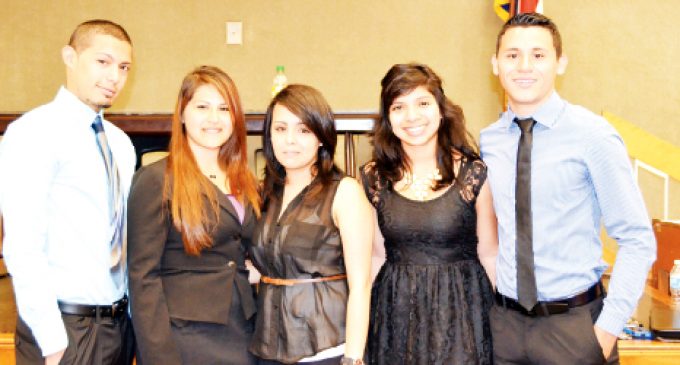Tuition disparity an obstacle for Hispanic students

Winston-Salem resident Juan Ortega has called North Carolina home since he was a kindergartner, but in the eyes of the state, he’s no North Carolinian.
Ortega, who is pursuing his associate’s degree in science, is struggling to keep up with his ever-mounting tuition bills. Because he is undocumented, Ortega, a native of Mexico, is forced to pay out of state tuition rates, which at Forsyth Technical Community College are nearly four times higher than the cost North Carolina residents pay. Despite having done well in school and obtaining the requirements needed for him to achieve his dream of becoming a physical therapist, Ortega says he is in an uphill battle.
“I’m not even sure if I can pay all of that,” he said of his tuition, which costs $261 per credit hour. “I might have to get a big loan, as if I were going to be a doctor, just to get my associate’s degree.”
Though he qualifies for deferred status under President Obama’s DACA(Deferred Action for Childhood Arrivals) executive order, Ortega says he is still denied many of the privileges citizens enjoy.
“Deferred action is only good for two years,” he said. “…It could be taken away at any moment, and I could be sent back to my country.”
Ortega and other immigrants shared their experiences during an April 11 panel discussion at their school, Forsyth Tech. Five students – Ortega, Abigail Cruz, Dulce Moreno, Salomon Pinargote and Estela Torres – spoke out about the challenges members of the Hispanic community face in the educational sector and in society.
“People think that Latinos or Mexicans or whoever don’t want to study, don’t want to learn. They think it’s their choice and their fault, but that’s not necessarily true,” said Pinargote, a native of Ecuador. “ It has a lot to do with how society treats Latino students. People expect Latino students to fail.”
Some members of the panel also recently spoke at the World View Conference at UNC Chapel Hill, and Carol Hayes, a communications teacher at Forsyth Tech, invited them to address their instructors and peers as well.
“I think this is something that really needs to be heard. We’re getting to see a unique perspective,” commented the Clemson University alumna. “…I hope that (audience members) have some insight into another culture because if you can have empathy and understand where a person’s coming from, it changes the whole dialogue and opens the doors of communication because although we have a lot of differences, we have a lot of similarities as well.”
For Cruz, who grew up in Davidson County, being the lone Hispanic student in her community, coupled with the fact that she didn’t speak English when she started kindergarten, made for a daunting experience.
“I went into the classroom, and automatically I was sat at the back … It was as if I was not even there,” she said.
As she gained a command of the language, Cruz said the scope of the discrimination she faced came into focus.
“Once I knew English, it was a whole different story. It was like, ‘Oh, the little brown girl – don’t talk to her. She doesn’t look like us,’” she related. “I went into this big depression – I was on medication – just because I heard all these bullying comments.”
Torres, a Salvadorian, said she had the opposite experience. The self described “over achiever” said she was buoyed by the confidence her mother and teachers displayed in her as a child.
“All of my teachers would tell me what a helpful, smart girl I was, and that my mother must be very proud,” she said. “That got to me – knowing that someone other than my mother believed in me. That gave me confidence in myself.”
Though she is an American citizen, Torres says she knows many people who suffer because they are not, which propels her to strive to be the best she can be.
“That helps me in the struggles of staying up and studying and trying to get through college,” she remarked. “I’m doing it for my mother and for other students that can’t.”
The North Carolina General Assembly is currently considering a tuition equality bill that could ease the financial strain for undocumented students. The In-State Tuition/Some N.C. Immigrant Youth Act, which would allow all youth who have graduated from North Carolina high schools and lived in the state for at least two years to pay the in-state tuition rates at public colleges and universities, was introduced in the NC House last week, as thousands of immigrants and their supporters converged on Washington, D.C. to demand immigration reform.
Ortega is hopeful that The Dream Act, which was reintroduced earlier this year, will open the doors for longtime residents like him to gain citizenship. Regardless of the Act’s fate, Ortega said he is determined to succeed.
“My parents brought me here to this country for better, and I am not going to let them down,” he declared. “They came a long way for me, and I will do the same for them.”












